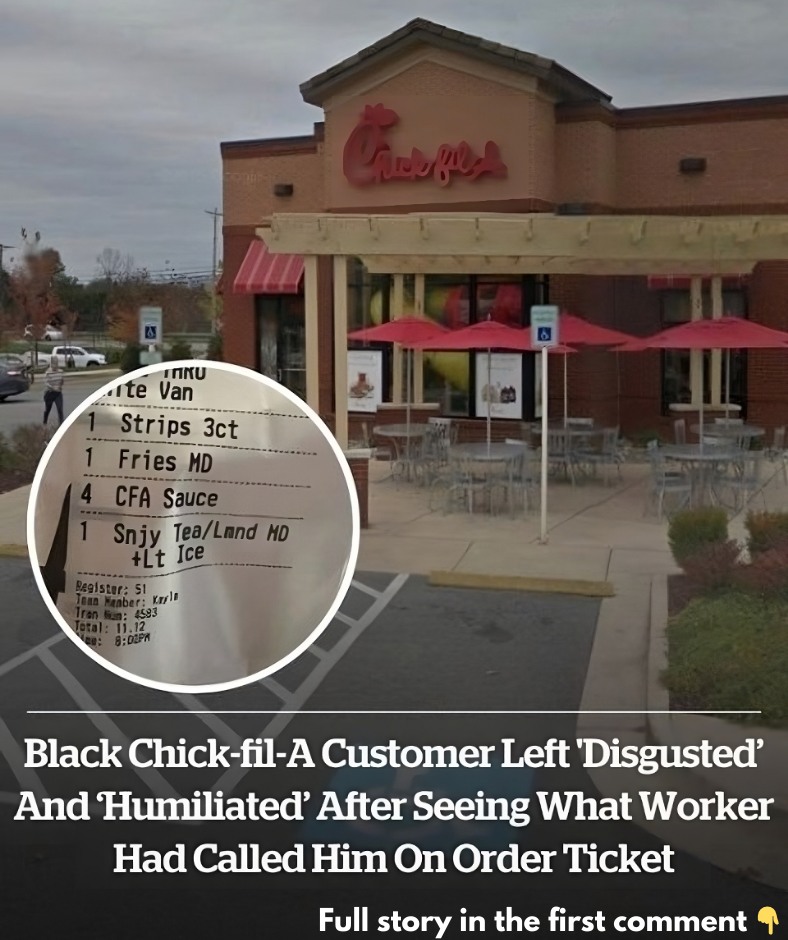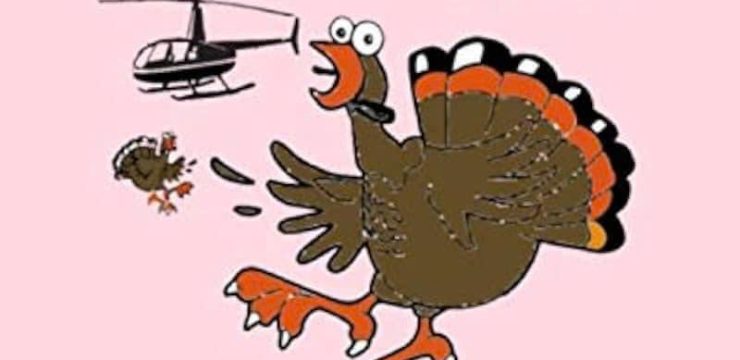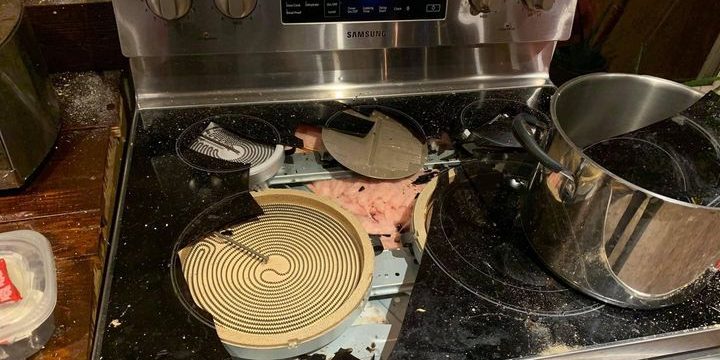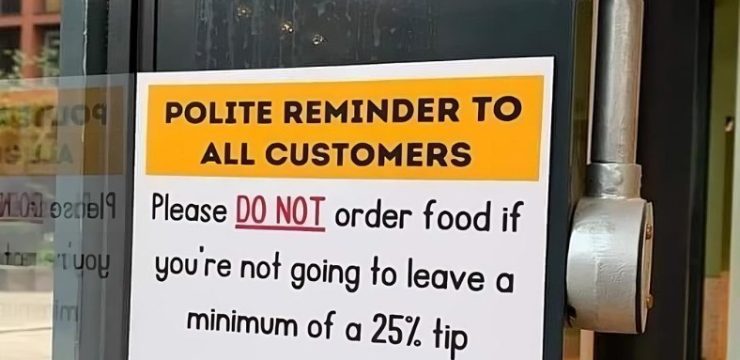In a shocking incident, Marquise Vanzego, a Black man from Maryland, was horrified after seeing a racial slur printed as the “guest’s name” on his Chick-fil-A order receipt. The incident happened on August 23 at a Chick-fil-A location in LaPlata, where Vanzego went to order chicken strips, fries, and a drink. Instead of receiving his order in peace, he was called by an offensive name as he waited for his to-go meal, sparking a wave of outrage and discussions about racial sensitivity in customer service.

What Happened at Chick-fil-A?
On that day, 52-year-old Vanzego visited the LaPlata Chick-fil-A to place an order in person. He clearly stated his name to the employee handling his order. After receiving his food, he was shocked to hear an employee call out the name “Monkeys.” Initially thinking it was a mistake, Vanzego’s confusion quickly turned to disbelief when the employee identified him as “the man in the white van,” matching Vanzego’s description.
Upon checking his receipt, Vanzego was stunned to find that the racial slur had been printed as the “guest’s name.” Outraged, he confronted the store’s manager, expressing his frustration and questioning whether this was an isolated incident or part of a broader issue of racial profiling at the establishment.
Vanzego’s Reaction: Outrage and Hurt
The use of the slur left Vanzego feeling humiliated. In a statement to TODAY, he described his reaction: “It felt like a punch in the gut.” The experience brought back painful memories of racism he had seen in the news and from his own life. He took to Instagram to share his story, calling the incident “deeply offensive and humiliating.” He also posted a video showing his conversation with the manager, in which he emphasized that he had provided his real name, “Marquise,” making it clear there was no excuse for the offensive misnaming.
Chick-fil-A’s Response: Apology and Accountability
In response to the incident, Chick-fil-A’s corporate office released a statement acknowledging that the situation was “unacceptable” and not in line with the company’s standards. However, they noted that the LaPlata Chick-fil-A is an independently owned franchise, meaning the owner is responsible for handling the matter.
The franchise owner explained that the employee who took Vanzego’s order was a 17-year-old white male who claimed he misheard the name as “Monkey.” When Vanzego challenged this explanation, he asked, “Have you ever met anyone named ‘Monkey’?” highlighting the absurdity and offensiveness of the situation. Despite Vanzego’s anger, the owner informed him that the employee would not be terminated.
Vanzego’s Call for Consequences
While Vanzego acknowledged the employee’s youth, he insisted that there must be accountability for such a mistake. “I understand he’s young, but he needs to know that actions have consequences,” Vanzego said. He wanted the employee to recognize the impact of his words, not just for punishment but as a learning experience.
Vanzego attempted to speak directly to the teenage employee, but the manager denied him the opportunity. This refusal further fueled his frustration, as he felt that addressing the situation face-to-face could have led to a more meaningful resolution.
Social Media Reactions: Mixed Opinions
The incident quickly spread across social media, garnering a wide range of reactions. Many users expressed sympathy for Vanzego, with comments like, “No one should ever face this kind of disrespect,” and “Customer service training needs to address racial sensitivity.” Some argued that it was likely a miscommunication, emphasizing the employee’s youth and inexperience. Others, however, countered that the term “Monkey” is a well-known racial slur and should not be dismissed as an innocent mistake.
Broader Implications: Why This Matters
This incident serves as a reminder of the racial biases that Black individuals may face in everyday life—even while picking up fast food. It also raises questions about how businesses handle complaints of racial insensitivity. While Chick-fil-A’s apology was a step in the right direction, it highlighted the challenges of holding independent franchisees to the same accountability standards as corporate-owned locations.
Moreover, the case illustrates the need for better training and education in customer-facing roles. Employees must understand the impact of their words and actions, especially in a diverse society where racial sensitivity should be a priority.
Conclusion: A Call for Greater Racial Awareness
The incident involving Marquise Vanzego at Chick-fil-A emphasizes the need for increased racial awareness in customer service. While some may view the event as a misunderstanding, the hurt caused by the use of a racial slur cannot be underestimated. Vanzego’s experience serves as a call to action for businesses to implement more effective training programs that address racial biases and promote accountability.
As discussions about this incident continue, it is clear that creating a respectful and inclusive environment for all customers is not just good business—it’s a matter of basic human decency. By addressing such issues with sincerity and empathy, businesses can foster better relationships with customers and ensure that no one has to endure a similar experience.





